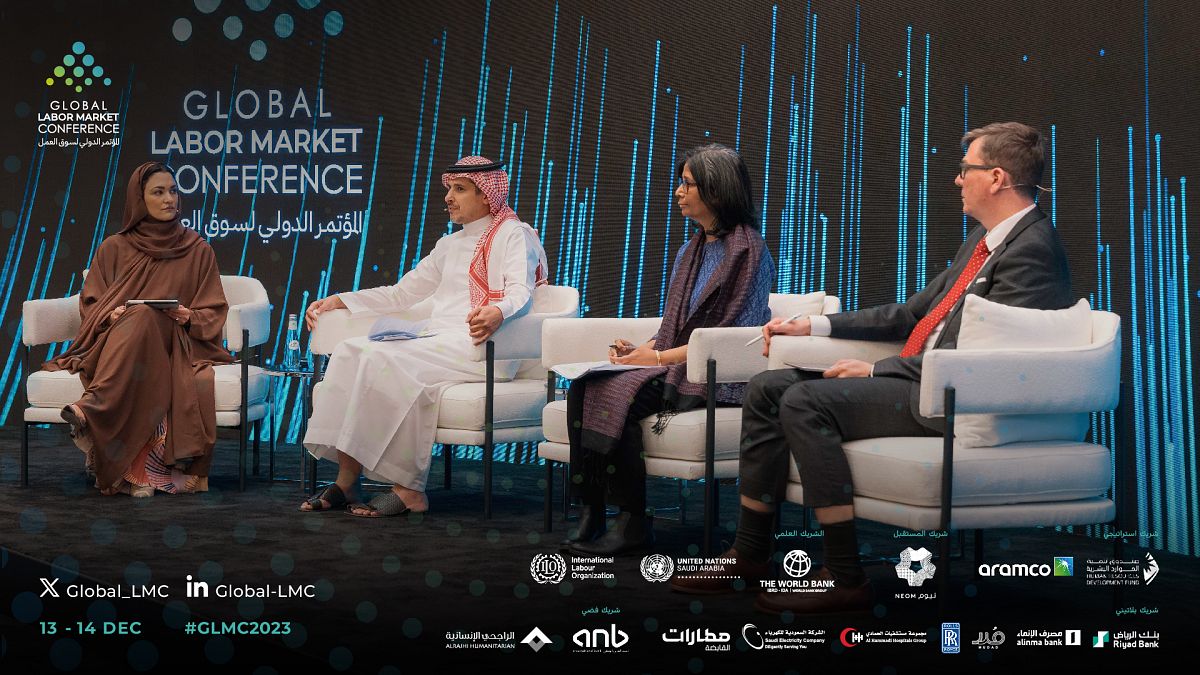Andrew Barnes, co-founder of 4 Day Week Global, praised Italy as a leader in the movement after Lamborghini announced its shorter week for production workers this month.
Speaking at the Global Labour Market Conference (GLMC) in Riyadh, Saudi Arabia, Barnes hailed shorter working weeks as the future of the workplace in Europe and beyond.
“We've done [pilot programmes] in Australia, New Zealand, the USA, Canada, the UK, Spain and we're doing one in Portugal, so this is a global phenomenon,” he says.
“Up to now, I would have said the UK was the most receptive. But just last week, Italy trumped it with Lamborghini moving to a four-day week.”
The conference, which was held on December 13 and 14, explored solutions to the major challenges facing labour markets today, evaluating labour policies and programmes to future-proof workforces, market trends and developments in labour laws and standards.
Organised in partnership with the UN International Labour Organisation (ILO) and the World Bank, the conference will be held annually and will act as the leading international platform for regulators, employers and civil society to promote innovative global labour market solutions.
Ahmad bin Sulaiman Al-Rajhi, Minister of Human Resources and Social Development of Saudi Arabia, opened the inaugural event at the King Abdulaziz International Convention, with more than 6,000 participants from more than 40 countries in attendance.
The opening ceremony made way for the start of the two-day conference, during which 150 experts participated in over 40 unique keynote addresses, panel presentations and breakout sessions focused on the current challenges and future changes facing labour markets.
The sessions covered eight key tracks: Global Labour Market Catalysts, Skills & Productivity Conundrums, Labour Market Makeovers, Work for All, AI Needs People?, Labour Market Re-engineered, The Right Way to (De)Regulate, and The Future Proofed Organisation.
Across the sessions, ministers, policymakers, industry leaders and labour representatives discussed the changing dynamics of the labour market, with Al-Rajhi calling for efforts to ensure new technologies are implemented to eradicate exploitation, avoid widespread job loss and maximise value for the global economy.
As well as shortening the working week, attendees discussed the role of AI in the future of the workplace, with Al-Rajhi predicting that artificial intelligence technologies will create 133 million jobs by 2030.
The AI evolution
Adonis Georgiadis, Minister of Labour of Greece, was one of 20 labour ministers from across the globe who gathered to collaborate on labour market issues.
Speaking to euronews, the minister described a move towards AI as both an opportunity and a threat.
“It's a new era. A lot of changes will come, and I have no doubt that it will be a huge tool for enterprises, for business and for the workers to do new things in a much more efficient and simple way, so this is exciting,” he says.
“On the other hand, it’s a little bit frightening because a lot of things will change. Employees will lose their jobs and we have to be ready to rescue them in order to make them easier to find the jobs that the market will need.”
In Greece, unemployment currently stands at 9.6 per cent, with an ageing population posing a challenge to economic recovery.
“This is a very big problem for us, for the whole European Union, and maybe for the whole of the West,” says Georgiadis.
“The population is ageing fast, birth [rates] are declining fast and maybe AI will help us with that, because some of the jobs that now need human force may not need it in the future.”
As well as addressing the productivity gap, experts predict that AI advancements in the workplace can provide opportunities for low-skilled workers – though competition will rise as a result.
“We are seeing generative AI boosting the productivity of particularly low-skill, low-income workers, and I think that has the potential to level the playing field,” says Carl-Benedikt Frey, associate professor of AI and work at the University of Oxford.
“We've been used to seeing rising inequalities around the world as a result of digital technologies, particularly manufacturing jobs have increasingly been automated away. And there is now some hope that we will see a partial reversal.
“What we saw with Uber was more people taking on work as taxi drivers, not fewer people. So we saw rising employment in taxi services, but at the same time it meant reduced barriers to entry and more competition for incumbent drivers who saw their wages drop by around 10 per cent.”
Employee retention
The future of the workplace was also high on the conference agenda, with employee retention emerging as a key consideration for success.
In today’s labour market, employees are looking for more than just fair wages, with flexibility, career progression and fulfilment high on the employee agenda.
“One thing we do know is that companies allowing for remote work have lower turnover," says Frey. “It seems to me that businesses that offer those flexible working arrangements are more likely to retain their talent.
“Secondly, I think most employees want an employer that provides career development opportunities. So using online platforms and digital technologies, elevating skills and development to allow people to advance in the company is extremely important.”
According to Abhishek Sharma, public sector partner at management consulting firm Oliver Wyman, there are three leading factors for employee satisfaction and, ultimately, retention.
“It's what we call extrinsic intrinsic and cultural motivation,” he says. “Extrinsic is typically monetary rewards, intrinsic is ensuring employees feel fulfilled, and a cultural fit between the employee and the employer that gives longevity to any employees in the company.”

